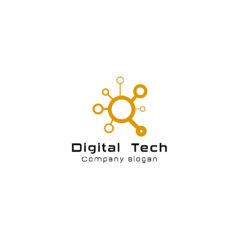Technical SEO refers to the process of optimizing the technical aspects of a website to improve its search engine visibility and rankings.
It involves making changes to the website’s infrastructure, server settings, and code to make it more accessible and understandable to search engines like Google, Bing, and others.
While content and backlinks play crucial roles in SEO, technical SEO ensures that search engines can crawl, index, and interpret your website’s content efficiently.
Several key components are involved in technical SEO:
1.Website Structure and Navigation
2.URL Structure
3.Page Speed
4.Mobile-Friendliness
5.Crawlability and Indexability
6.Canonicalization
7.HTTPS and Website Security
8.Structured Data Markup
1.Website Structure and Navigation
Ensuring that your website has a logical and organized structure, with clear navigation paths, helps search engines understand the relationships between different pages and content.
2.URL Structure
Creating clean and descriptive URLs makes it easier for search engines and users to understand the content of a page by just looking at the URL.
3.Page Speed
Optimizing your website’s loading speed is crucial because faster-loading pages improve user experience and can positively impact search rankings.
4.Mobile-Friendliness
With the majority of internet traffic coming from mobile devices, having a mobile-friendly website is essential. Google also prioritizes mobile-friendly sites in its search results.
5.Crawlability and Indexability
Ensuring that search engine bots can crawl and index your website’s content is fundamental. It involves using robots.txt, sitemaps, and managing any potential crawl errors.
6.Canonicalization
Avoiding duplicate content issues and setting the preferred version of a page to be indexed is important. This helps search engines know which version of a page to consider for ranking.
7.HTTPS and Website Security
Having a secure website with an SSL certificate (HTTPS) is now considered a ranking factor, and it also builds trust with visitors.
8.Structured Data Markup
Adding structured data to your website can enhance search results with rich snippets, making it more attractive to users and potentially improving click-through rates.
Technical SEO is crucial for website owners and businesses for several reasons:
1.Search Engine Visibility
2.User Experience
3.Crawl Efficiency
4.Competitive Advantage
5. Preventing Ranking Issues
1.Search Engine Visibility
Implementing technical SEO best practices ensures that search engines can access and understand your website’s content, increasing the chances of ranking higher in search results.
2.User Experience
Many technical SEO aspects, like page speed and mobile-friendliness, directly impact the user experience. A well-optimized site will lead to lower bounce rates and higher user engagement.
3.Crawl Efficiency
By making your site more accessible to search engine bots, you help them crawl and index your content more effectively, leading to quicker updates in search results.
4.Competitive Advantage
Technical SEO provides an opportunity to outrank competitors who might not have optimized their websites in the same way, leading to higher organic traffic and potential conversions.
5. Preventing Ranking Issues
Technical SEO fixes can help prevent common issues like duplicate content, broken links, and other factors that might negatively impact search rankings.
In summary, technical SEO is a critical foundation for any successful SEO strategy. It ensures that your website is search engine-friendly, user-friendly, and capable of achieving higher rankings in search results, ultimately leading to increased organic traffic and potential business growth.




Leave a Reply